- Massaging the truth - 27th February 2026
- ‘It’s the new economy, stupid…’ - 27th February 2026
- Eyes right… - 26th February 2026
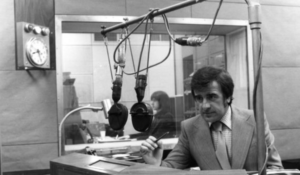
The BBC will begin the New Year facing challenges about its dismal listening figures on Radio Wales in a Freedom of Information Act (FOIA) request as one complaint listing protests on a widely-seen website says “Something is not right…”.
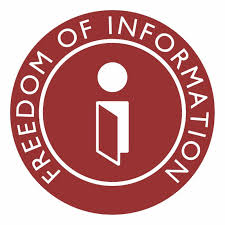
Now the contentious broadcaster must deal with another FOIA asking: “What are the listening figures for (the radio programme) Good Morning Wales on BBC Radio Wales?”.

One of the protesters on the Digital Spy Forum wrote about RW: “The morning news programme has reduced its hours. The content of the morning news is poor, not enough news stories, Radio Four Today it is not”.
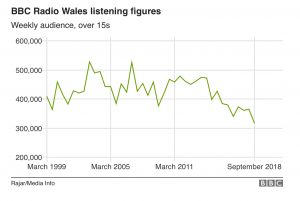
The weekly audience ‘reach’ for RW is now only 317,000 yet for the station’s 40th birthday commemorations he told media executives it would be approaching 500,000. But at the birthday ‘celebrations’ Mr Paterson said: “Radio stations tend to be looking more towards narrow-casting…”. Earlier this year when other low listening figures were released for RW he said: “I couldn’t be more pleased…” and in response to a decision to axe RW coverage of the football club Wrexham FC Mr Paterson told a fan to listen online.
On average a mere 2,750 people out of the 3,000,000 population of Wales are listening per hour, giving the station a tiny 4.4 per cent share of the Welsh market, yet it still claims it is the “national radio station for Wales”. The cost works out at about £6500 per listener per annum.

Publicly though, RW still sees itself as a “success story” and the creation of new posts appears to continue unabated. Earlier this year officials said they wanted to appoint an “experienced radio professional” as Deputy Editor at RW during an “exciting time” for the station despite the low audience figures. The successful candidate would “engage and inspire”.

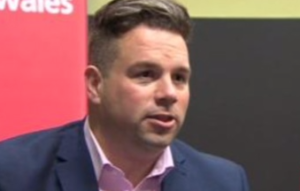
Mr Flynn adds in his email to Mr Paterson: “Entertainment programmes now secure higher audience figures than news programmes.”
He wrote “… your position (is) completely untenable” and said “… you have brought in a number of B-list ‘celebrities’ to present programmes, but this has done nothing for the audience figures. You have stated that you were a highly-successful producer at Red Dragon and also at Radio Wales when the audience figures were much higher. You have failed to repeat this performance.”
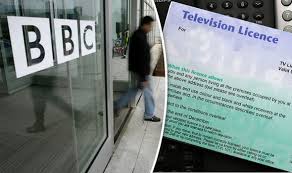
Mr Flynn pointed out in his email the importance of the licence fee payer in the unfolding drama: “I should remind you that it is the public who pay your salary through the licence fee.”.
The latest controversies to beset BBCW are set against a disturbing background of the closure of TV Current Affairs programmes.
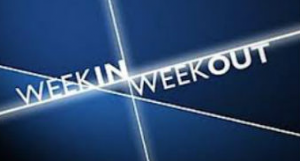
The popular TV debate series The Hour was axed after just a year and at a cost to the licence fee payer of about a million pounds, following the closure of the 53 year-old award-winning Welsh TV Current Affairs programme Week In, Week Out (WIWO), and the disturbing news became the subject of our satirical writer Edwin Phillips.
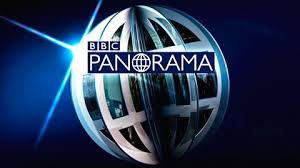
Viewers had described The Hour as “necessary” and even BBC Wales had admitted to The Eye it “capture(d) the mood of the nation”. The move to axe WIWO, but after a much longer run, came after it had won a clutch of awards including at the Royal Television Society, BAFTA Cymru, the Celtic Media ceremony and BT Wales. Another award came even after BBCW had closed WIWO. The programme had also been used as a springboard for Panorama episodes, and one of the journalists’ investigations still features near the top of an internal document recording the highest viewing figures. Another WIWO helped secure new evidence which led to the release from prison of three young South Wales men who had been wrongly convicted of murder, known as the Cardiff Newsagent Three.

Even so it was replaced by the occasional programme ‘BBC Wales Investigates’. But the decision has not been universally welcomed.
Our Editor Phil Parry, who presented WIWO for more than 10 years until 1999, told WalesOnline: “It is absurd to suggest that putting a label on a story like ‘BBC Wales Investigates’ in any way compensates for getting rid of a regular weekly Current Affairs strand which had been going for many years, like Week In Week Out. It never works – they tried to say the same when they got rid of Public Eye on BBC 2.
“‘Public Eye Investigations’ was never heard of again. When you have a regular series, with a team of people who know each other, an ‘esprit de corps’ develops. You know who are the best ‘quick turnaround merchants’ and who are better to be left alone so they can work on longer investigations.”
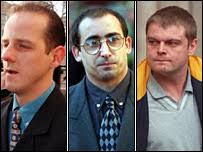
The ending of WIWO and The Hour followed the demise of a long list of TV Current Affairs programmes – including World in Action, This Week, TV Eye and First Tuesday on ITV, and Rough Justice as well as Public Eye on network BBC.
But the actions by the publicly-funded corporation to scrap theirs have proved troubling, and the cost involved was questioned. The TaxPayers’ Alliance told The Eye:“The BBC cannot be this profligate and not expect to face serious and legitimate criticism from licence fee payers. The BBC needs to demonstrate better value for money, or calls for scrapping the licence fee will only grow in volume and validity.”
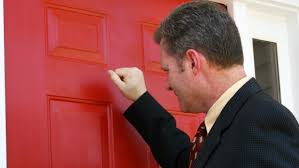
As one highly-critical website puts it: “Where is the investigative journalism? Where are the probing documentaries? Where is the reporting of the terrible scandals and corruption that rack our much-abused nation (Wales)? Responsibility partly rests with (BBC Radio Wales) editor Colin Paterson, but chiefly with BBC Wales director Rhodri Talfan Davies”.
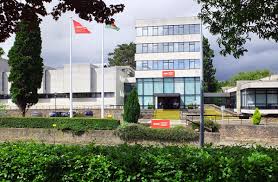
Earlier this month The Eye showed how BBCW staff had endorsed a hard-hitting article in the London Review of Books called “Can’t Afford to Tell the Truth” which exposed the appalling culture of wasted money, duplication of resources, overmanning and internal competition.
Check your knowledge of major events as revealed on The Eye, with our brilliant interactive quiz: [viralQuiz id=1]











